Fordham Foundry
One Business Idea at a Time

Fordham Foundry
One Business Idea at a Time
or 10 years, the Fordham Foundry has served as the University’s hub for entrepreneurship and innovation. From its early beginnings as a business incubator and academic resource for students supported by funding from the Gabelli School, grants from NASDAQ Educational Foundation and investment bank BNP Paribas, and physical space provided by the City of New York, the Foundry has evolved into a thriving entrepreneurship center.
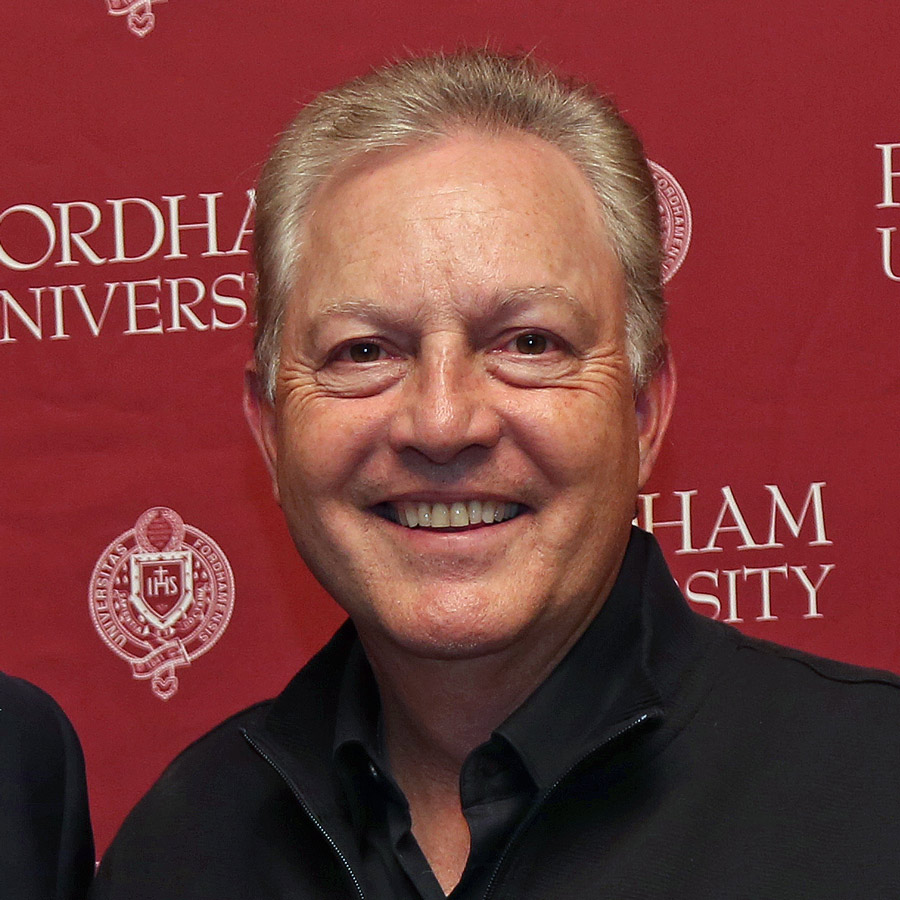
Supercharging Future Businesses
The entrepreneurs bootstrapped their company, Brevitē, funding it completely without investors and running the business out of their dorm rooms. A Kickstarter campaign raised a little over $38,000, giving them a solid head start. They also received “practical guidance and constant support” from the Foundry that Kim said helped to take their business to the next level. He is “deeply loyal and grateful to the Foundry,” where he is now a member of the alumni council.
In 2018, Kim participated in the Foundry’s popular Ram’s Den business competition —an experience that gave their business an unexpected financial boost at a time they needed it most. The Shark Tank–style event invites startups with growing momentum and at least $10,000 in revenue to compete for prize money. That year, the judges awarded the Brevitē team the first-place prize of $25,000 for its weatherproof travel bags, designed from recycled materials.
“Brandon was an entrepreneur-in-residence at the Foundry while he was building Brevitē, and today it is a multimillion-dollar specialty backpack company,” said Al Bartosic, BS ’84, executive director of the Fordham Foundry. “They’re off and running.”
The company, which now has a team of 10 employees, also moved from its humble beginnings in a dorm room into a new Brooklyn office and a manufacturing facility in Vietnam.
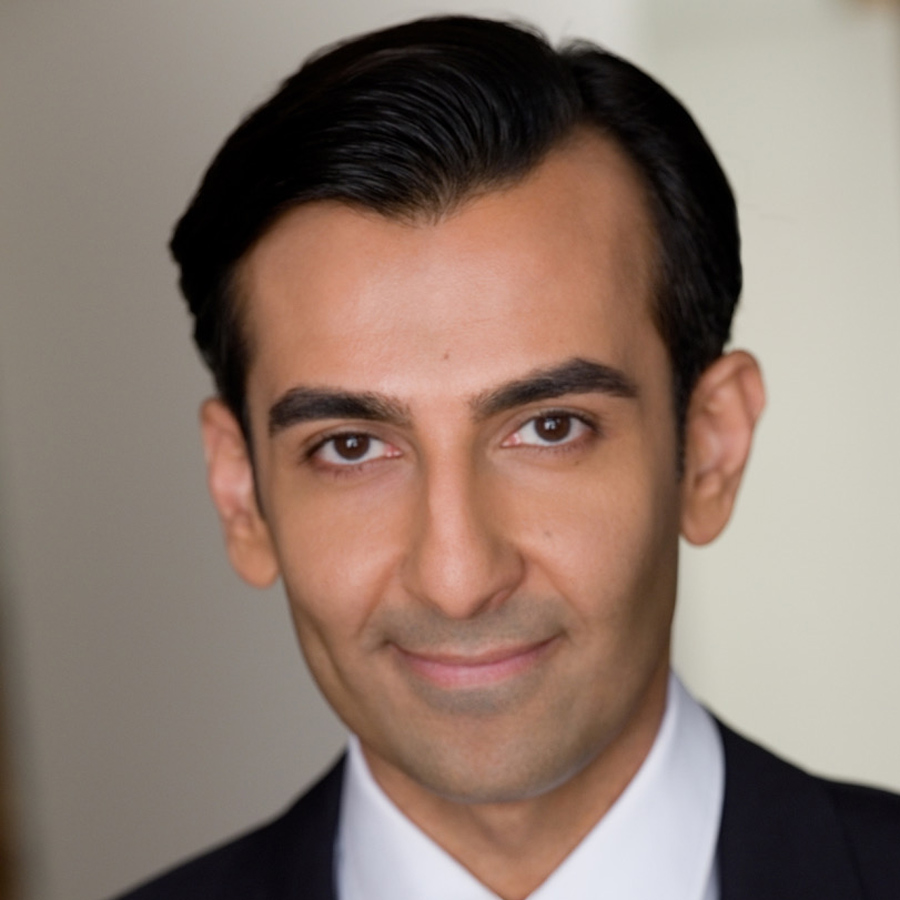
Raza said the advice he received at the Foundry helped him develop investment pitches, plan marketing strategies, and rethink key decisions. He is grateful to his mentors, Bartosic and Milton Sussberg, Foundry director, who he said always make themselves available to answer questions and kick around ideas, and “even accept late-night calls.”
“They’re really interested in understanding what it is that you’re building,” Raza said. “It’s good when you’re working with someone who can see around the corners. You can steer your way around things faster and actually create value a lot quicker.”
Like the Ram’s Den, the Fordham Foundry’s Pitch Challenge offers contestants a chance to present their business ideas to a panel of judges and compete for prize money. In 2021, nearly 160 contestants applied, and 60 competed for $20,000 in prizes. In the six years the competition has been running, Pitch Challenge contestants have presented wide-ranging business ideas, such as a company offering fashions for tall women; a network that connects student-athletes with sponsorship opportunities; a lock box to secure at-home package deliveries; and a digital platform that enables professionals in the beauty industry to schedule appointments, receive payments, and manage social media.
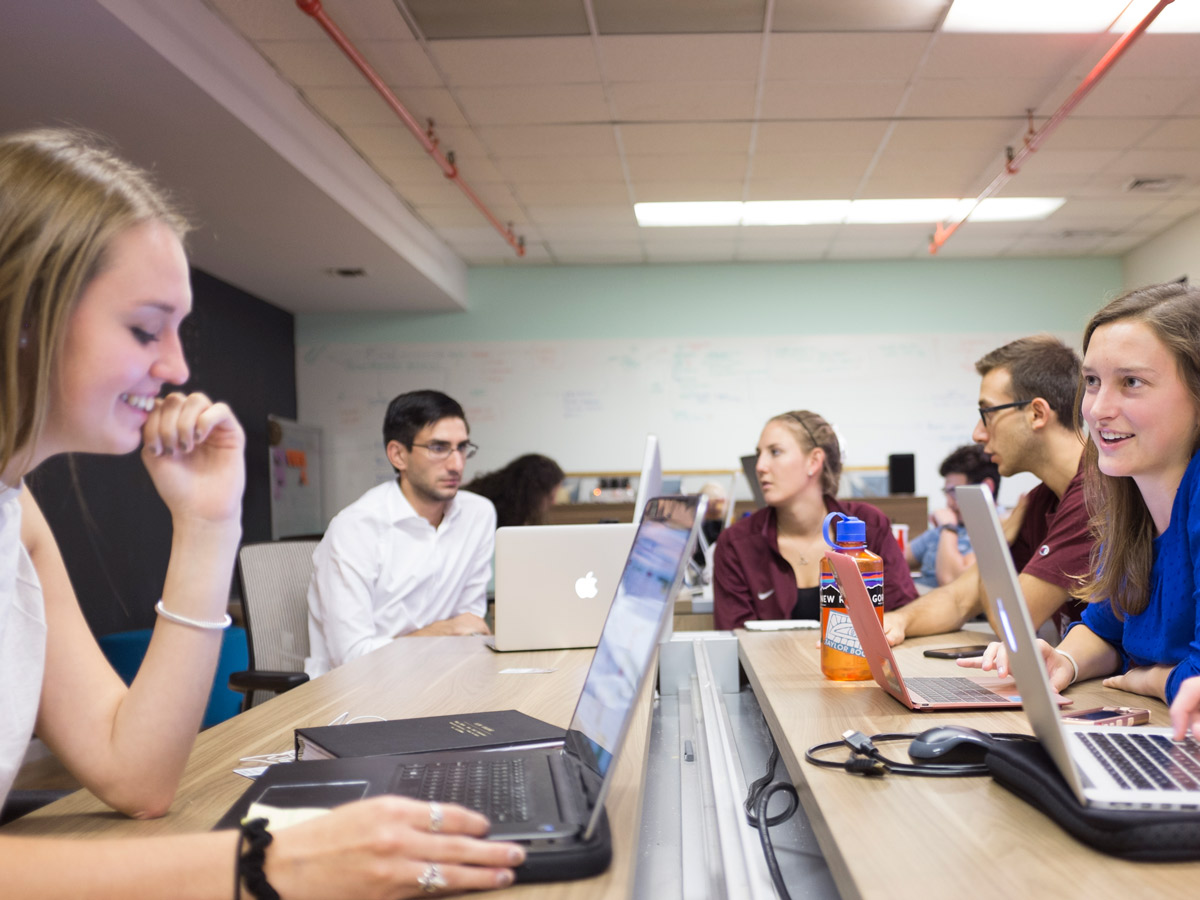
The Foundry’s History
With the support of the Gabelli School and a Bronx working space shared with the New York City Small Business Service Center, the Foundry settled into its first home on East Fordham Road in October 2012. Since then, has expanded to new locations in the Bronx and at Lincoln Center.
Sussberg said some of the biggest changes at the Foundry over the last 10 years have been its physical expansion, educational offerings, and the growth of its staff, whose diverse backgrounds enable more students to make connections with mentors in their fields of interest.
“Although we’ve always had a wonderful board of advisors, we were limited. I’m in a certain industry, and I have certain things that I know and many things I don’t,” Sussberg said. “Now we have a diverse staff with very diverse backgrounds. If a student is looking for mentorship, we can put them [in touch] with someone on our team or staff who has expertise and networking resources for them.”
Today, the Foundry’s leadership team includes a 10-person advisory board of entrepreneurs, business leaders and CEOs from organizations such as EY, Adobe, WeWork, and others. They share their passion for entrepreneurship with students and alumni through mentoring, sponsorships, and consulting with the Foundry in a multitude of ways.
Michael Doorley, BA ’78, joined the advisory board in 2020 after he sat in on a Pitch Challenge competition and connected with the contestants. Now working on developing his own startup, he has a background in public accounting that includes positions as division or corporate CFO, CAO, and COO of domestic and multinational financial services firms, including Fidelity and Prudential, which did a number of startups. Doorley is also the founder of the U.S. Debt Forum and Hudson River Recreation, and his diverse background enables him to share his experiences in both small and large businesses with budding entrepreneurs.
“Working in a small company for 15 years gives you a great perspective, and when you go to a larger company, you basically understand the entire process,” said the Bronx native. “It’s exciting, energizing, and sometimes challenging being around entrepreneurs who think differently, are hardworking, focused, and intellectually curious, and it’s rewarding as many are creating new products and services to make our world a better place.”
Doorley participates in a number of activities and events at the Foundry, but one of his favorites is “Pizza Thursdays,” an informal weekly get-together with an open-door policy for any students and alumni who want to talk shop or just observe.
“We’ll take a case study or watch a video and then talk about it to get the students’ thoughts,” he said. Asked about the progress he has witnessed the Foundry make in the two years he’s served on the board, Doorley said he has not only noticed an increase in offerings, but also increasing interest from students across Fordham. “I think there’s a greater connection with the other schools [beyond the Gabelli School],” he said. “We’ve had some fantastic presentations and contest winners from Fordham Law, Social Services, and Fordham College. The Foundry also works closely with the Entrepreneurial Law Clinic as well as the Social Innovation Collaboratory.”
The Foundry’s alumni council includes Brandon Kim and other alumni who are successful entrepreneurs and venture capitalists. The team brings a wide range of experiences to the table, offering students and alumni who are beginning their own business journeys a strong support network.
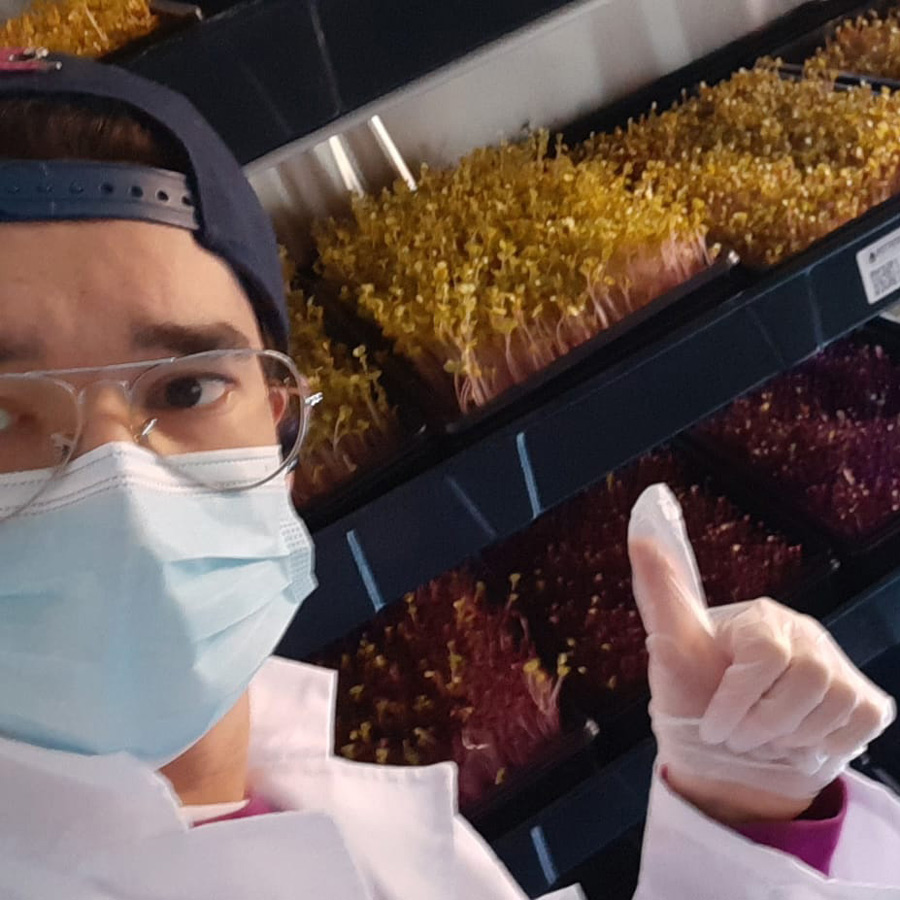
The Angel Fund
Applicants meet with student fellows and work together to solidify marketing strategies, sales projections, and final pitches before presenting their businesses to a panel of investors. If approved by the Investment Committee members, selected businesses can receive up to $25,000.
Recently, Alexandr Andrushevich, BS ’22, and George Sheridan, BS ’21, became Angel Fund recipients. They are partners in a business they dreamed up to address food insecurity in low-income communities. Their automated hydroponic growing system is designed to provide a solution, bringing fresh produce to the Bronx, a food desert known to have one of the highest rates of food insecurity in the nation.
Andrushevich and Sheridan took their idea for EvoFarms to the Foundry, and the expert feedback they received, along with the additional funding, enabled them to buy 3D printers, manufacture new parts for their vertical farming machines, and figure out how to execute their vision.
“More important than the financial support have been the opportunities that have been unlocked through the Foundry and the advice we have received on how to structure the company,” Andrushevich said. “Whenever we’re in doubt, we know that we have the Foundry and its experienced team that can correct us and give us guidance.”
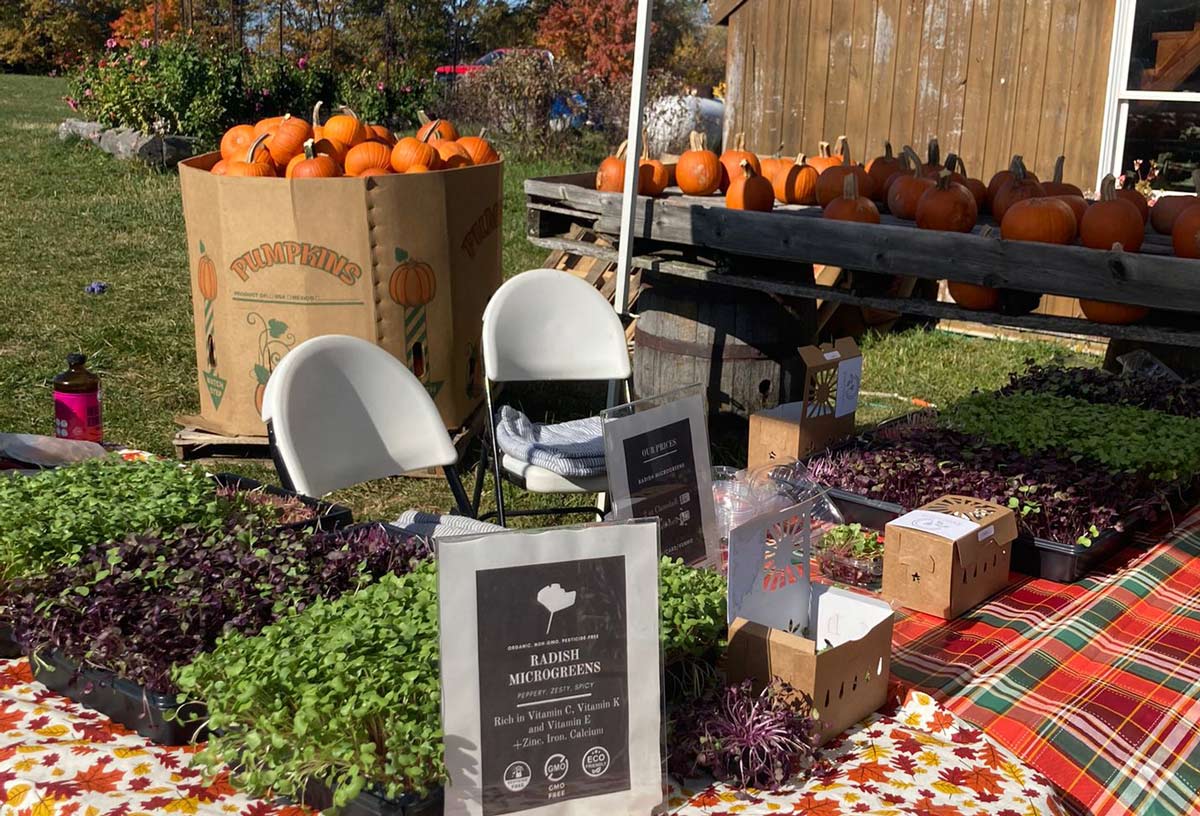
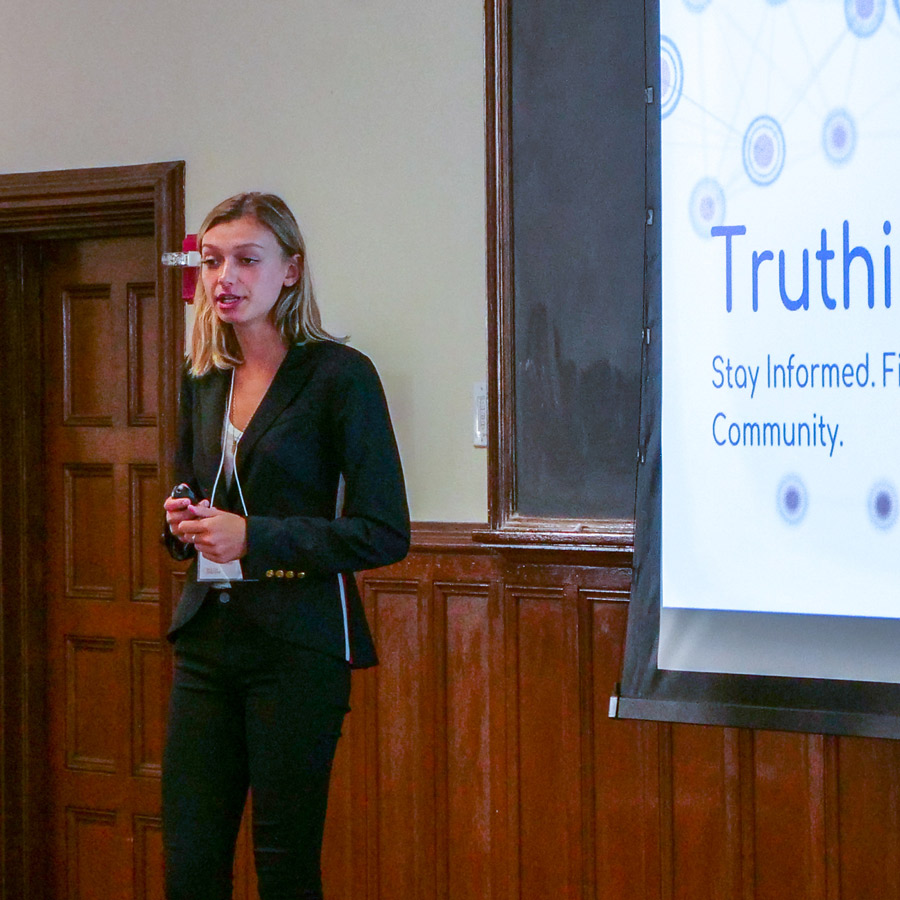
Nurturing an Entrepreneurial Mindset
Startup Venture Experience, a course in the Gabelli School’s entrepreneurship concentration, is one way the Foundry fosters this approach to creative problem-solving. Students intern and attend a weekly seminar where they analyze their real-life experiences alongside current case studies to gain a deeper understanding of how startups function with limited resources.
“It’s rewarding to help students develop an entrepreneurial mindset,” said Sussberg, who teaches the course. “The idea of dealing with limited resources is not exclusive to any interest. It’s a good mentality to learn. The more we expose students to classes in entrepreneurship, the more they will benefit and thrive in business.”
Margaret Ngugi, MBA ’17, connected with the Foundry when she left Kenya to study at Fordham, with hopes to one day launch a company of her own. However, through an internship at the Foundry, Ngugi discovered the role of product managers, and realized it was the perfect fit for her. She eventually landed a job at Google Nest, a line of cutting-edge smart home products, and now works as a product manager in the company’s Canadian office.
“Had I not had that experience, I wouldn’t have found what I determined to be my dream job,” Ngugi said. “I just didn’t know it existed, so being involved with the Foundry opened my eyes to what was possible for me. That has opened so many doors.”
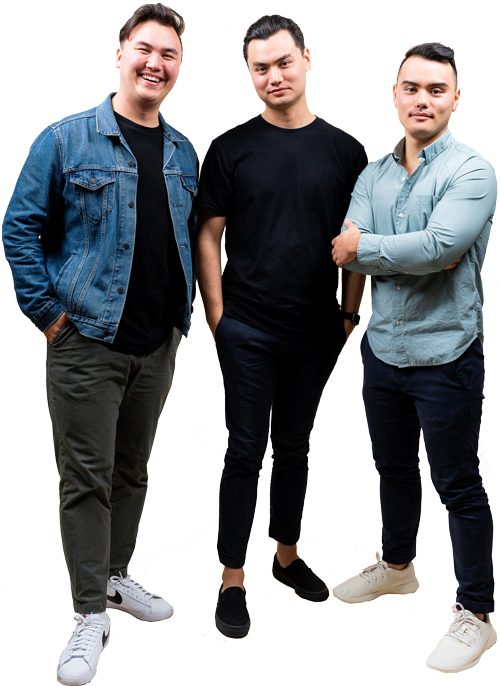

A New Decade for Innovation
While the Foundry has done just that for several thousands of students and alumni over the years, Bartosic looks forward to welcoming even more Fordham entrepreneurs in the next decade.
“Our greatest strides have been in bringing entrepreneurship Fordham-wide,” Bartosic said. “We made a conscious effort to open up the Foundry to students from all walks of life. When it began, there was an application process, and you got accepted to be in the Foundry to work on your idea. We broke that down and said, ‘You don’t need to apply; you can just show up and we’ll help you with your business.’ Then we started getting students from all different schools, and that’s accelerated over the years. There’s a lot of entrepreneurial energy in the Fordham ecosystem.”
Gabrielle Simonson is a freelance writer based in New York.